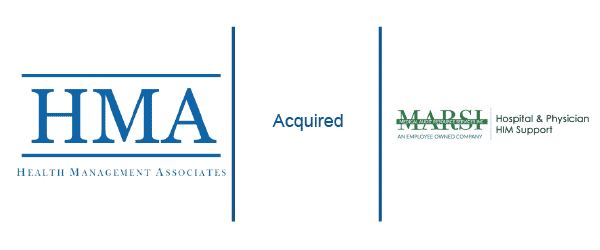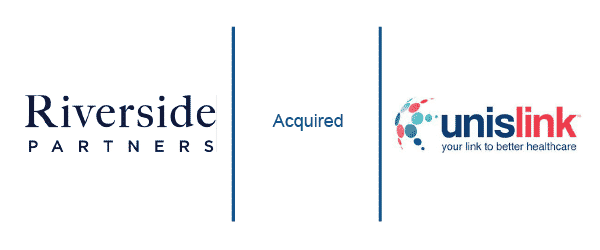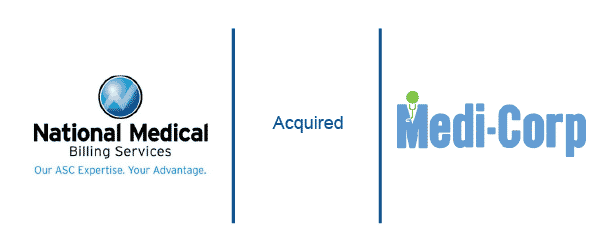Scale matters. Healthcare providers facing headwinds that are causing reverberations to outsourced service providers that will continue to drive M&A volume.
By CAS August, 2022
In the revenue cycle management (RCM) vertical, deal volume (approximately $2.7B in Q2 2022) is up significantly from Q1 2022 and Q2 2021, primarily driven by larger private equity recapitalizations and strategic mergers and acquisitions to strengthen service offerings across the entire revenue cycle. We at CAS expect this trend to continue through the back half of 2022, as the service providers consolidate down to participants with scale and/or software solutions.
The revenue cycle management dominos fell quickly in the form of consolidation. Industry participants are citing the growth challenges, given the long sale cycle and various headwinds discussed below. Aspirion, backed by Acquiline Capital Partners, was recapitalized with a new private equity backer in Linden Capital Partners. Acquiline will retain a stake in the entity as they look to expand their complex claims-focused RCM platform. MedMatrix, backed by A&M Capital Partners, acquired PatientPal to expand their front-end RCM software solutions offering. Aergo Solutions, backed by Northstar Capital, has joined CorroHealth, backed by The Carlyle Group. ParaRev, backed by Housatonic Partners, also joined CorroHealth. Scale matters and based on our research and anecdotal discussions with RCM market participants, the larger vendors have achieved record organic growth as well. The second quarter of 2022 proved to be a pivotal moment in companies working to achieve scale, and we believe this trend will continue to unfold.
The financial performance of hospitals, an aspect that we continue to witness and highlight, remains poor. Hospitals are still facing downward pressure as a result of encountering periods of significantly reduced patient volumes and revenue, per KaufmanHall’s National Hospital Flash Report. For the first four months of 2022, hospital operating margins have been negative. Inflationary pressures across the sector have been cited. Not-for-profit hospitals are faring even worse than their for-profit counterparts. This is a trend that will likely need to be rectified by numerous channels, including the reinstatement of credit reporting, litigation, and other “hooks” in collecting debts; for now, the trend will likely carry on for the foreseeable future. Negative operating margins will continue to drive consolidation, which is a candid risk for outsourced vendors and partners. A quickly identified synergy in the hospital consolidation playbook, for better or for worse, is typically the outsourced vendors/partners, as they look to compress margins with outsourced partners with the promise of increased volumes, given the newly minted scale. The one saving grace, of all organizations, may be the FTC, as they look to thwart more consolidation in the health care industry. It will be intriguing to monitor whether it is truly just on the provider side or if it will impact the RCM vertical as well.
Labor in the revenue cycle and adjacent verticals seem to be dominating news headlines as well. At a time when nearly 48% of revenue cycle or billing departments are experiencing a severe labor shortage, per a report released by R1 RCM, some venture backed companies, like Cedar, cut 24% of its work force. As a reminder, Cedar raised over $350M to date, including a Series D financing round led by Tiger Global Management. The juxtaposition between the “haves and have nots” has never felt more pronounced. The long-term winners in the revenue cycle will likely be those providing what has traditionally been a service that has since been codified and scaled, and thus, has significantly reduced operating expenses.
Not all is doom and gloom for the revenue cycle vertical. There are new market entrants raising money amongst a challenging backdrop who offer new solutions to old problems. Rivet Health raised $20.5M in a Series B funding round led by Catalyst Investors. Founded in 2018, Rivet offers solutions that solve front-end problems, such as patient cost estimation, but also integrates to solve denials management and underpayment workflows. The multi-pronged solution stack is a trend to monitor over the coming quarters as outsourced vendors/partners look to be a one-stop shop for healthcare providers.
Noteworthy transactions
Health Management Associates acquire Medical Audit Resource Services, Inc.
Riverside Partners acquire Unislink
National Medical Billing Services acquired Medi-Corp




